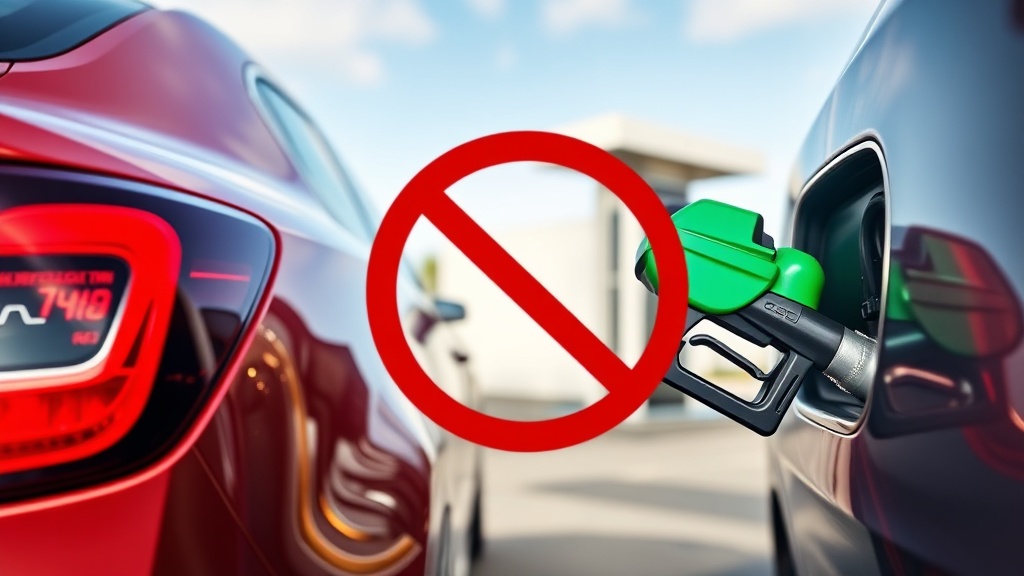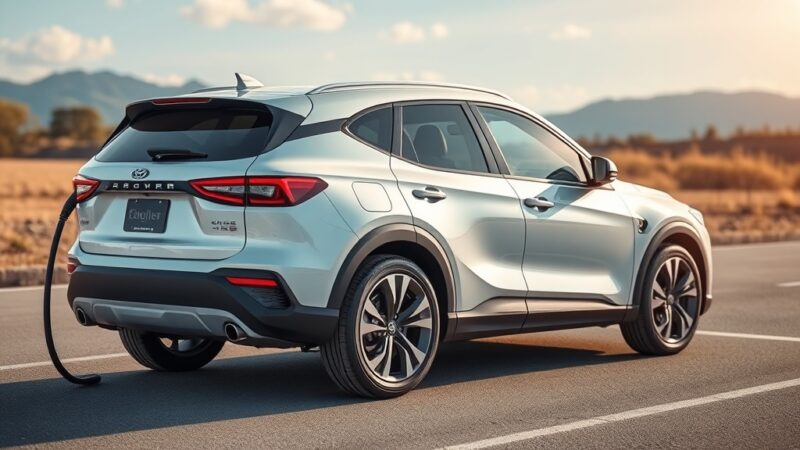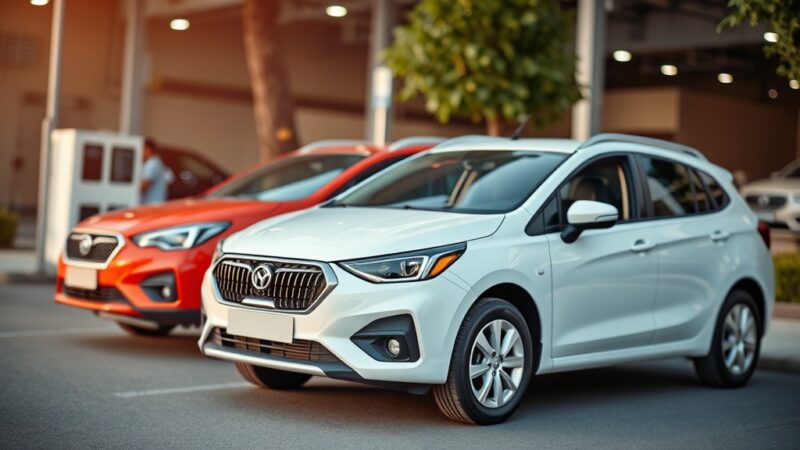Choosing the Right Fuel for Your Best Gas Efficient Cars
When it comes to optimizing your driving experience, choosing the right fuel for your gas-efficient car is essential. The type of fuel you use can significantly impact your vehicle’s performance and fuel economy. Here are some important aspects to consider when selecting the most suitable fuel for your car.
First, you should be aware of the different types of fuel available on the market:
- Regular Unleaded: Most gas-efficient cars are designed to run on regular unleaded gasoline, typically with an octane rating of 87. This is often the most economical choice.
- Premium Unleaded: Some high-performance and luxury vehicles recommend or require premium gasoline with an octane rating of 91 or higher. This can help enhance performance but may not provide better fuel efficiency.
- Flex-Fuel: Certain vehicles can operate on E85, a blend of 85% ethanol and 15% gasoline. While E85 can be a renewable option, it typically provides lower fuel economy than traditional gasoline.
- Diesel: Diesel fuel may be more efficient than gasoline for specific cars, delivering superior torque and better mileage. However, diesel vehicles often come at a higher price point initially.
Next, understanding your car’s specifications is crucial. Always check your owner’s manual to find recommendations on fuel types to ensure that you do not void the warranty or compromise your vehicle’s efficiency. Many modern vehicles are equipped with systems that can adapt to different fuel qualities, but they still perform best with the fuel recommended by the manufacturer.
Here’s a brief look at how different fuels affect your fuel efficiency:
| Fuel Type | Typical Octane Rating | Fuel Economy (MPG) | Cost per Gallon |
|---|---|---|---|
| Regular Unleaded | 87 | 30-40 | $3.00 |
| Premium Unleaded | 91 | 28-38 | $3.50 |
| Flex-Fuel (E85) | 94 | 20-30 | $2.80 |
| Diesel | ~ 40 | 25-35 | $3.20 |
Moreover, consider the environmental impacts of the fuel you choose. Many consumers are becoming increasingly interested in eco-friendly options. Choosing biodiesel or E85 can reduce greenhouse gas emissions. However, it’s essential to balance environmental concerns with fuel efficiency and cost.
Additionally, be mindful of how fuel quality affects your vehicle’s performance. Poor-quality fuel can lead to engine issues and reduce overall efficiency, negating the advantages of having a gas-efficient car. Look for established brands and monitor fuel stations that offer high-quality gasoline.
It’s important to maintain your vehicle to ensure optimal fuel efficiency regardless of the fuel type. Regular maintenance, such as oil changes, tire pressure checks, and air filter replacements, can significantly enhance your car’s performance. Additionally, consider your driving habits — aggressive driving can waste fuel regardless of the gas type you use.
It helps to remain informed about current fuel prices and policies in your area. Fuel prices can vary widely by region and sometimes even by the neighborhood. Keeping an eye on local trends can help you save money and maximize efficiency.
Choosing the right fuel for your gas-efficient car involves understanding the different types of fuel, knowing your vehicle’s specifications, considering environmental impact, and maintaining your vehicle. By making informed choices, you can enhance your car’s performance and get the most out of every gallon.
The Impact of Fuel Types on Vehicle Performance and Efficiency
When it comes to optimizing your vehicle’s performance and fuel efficiency, the type of fuel you choose plays a crucial role. Different fuel types interact with your car’s engine in varied ways, impacting everything from power delivery to emissions. Understanding how these fuels differ can empower you to make an informed choice that benefits both your driving experience and your wallet.
Gasoline is the most common fuel for many vehicles, and it comes in several octane ratings. Regular gasoline typically has an octane rating of 87, while premium gasoline can reach 91 or higher. The octane rating indicates how resistant the fuel is to knocking, which is when fuel burns unevenly in the engine. Using a higher octane fuel in an engine designed for regular gasoline won’t necessarily improve performance or efficiency, but using regular gasoline in vehicles designed for premium can lead to decreased power.
As for diesel fuel, it offers higher energy content and typically results in better fuel economy. Diesel engines are often designed to be more efficient than their gasoline counterparts. However, diesel fuels usually carry different emissions profiles, impacting environmental considerations and regulations.
Comparing Fuel Types
| Fuel Type | Octane Rating | Power Delivery | Fuel Efficiency |
|---|---|---|---|
| Regular Gasoline | 87 | Average | Standard |
| Premium Gasoline | 91+ | Higher | Depends on engine |
| Diesel | N/A | High Torque | Generally Better |
Another fuel type that’s gaining traction is ethanol-blended gasoline. Ethanol is a renewable source made from plants, frequently produced from corn or sugarcane. Regular gasoline often contains up to 10% ethanol, known as E10. This mix lowers greenhouse gas emissions and helps to reduce dependence on fossil fuels. However, engines not designed for ethanol may experience issues like decreased fuel efficiency and increased engine wear over time.
Vehicle Performance across Fuels
The performance of your vehicle can significantly vary depending on the fuel type. Owners of performance vehicles, for instance, might find that using higher octane fuel helps provide the power needed for optimal performance. Enhanced combustion from premium gasoline can lead to more horsepower, especially in high-performance engines designed to leverage this quality.
- Turbocharged engines: These engines often require higher octane levels to prevent knocking, allowing for better performance when running on premium fuel.
- Fuel economy: Diesel engines often deliver improved mileage compared to gasoline engines, thanks to higher energy density and efficient combustion processes.
- Regenerative power: Electric and hybrid vehicles employing gasoline can benefit from using cleaner burning fuels that have lower carbon footprints.
Furthermore, the choice of fuel can also impact maintenance costs. Gasoline engines tend to have lower initial costs and maintenance requirements. Diesel engines, while more costly to maintain in certain aspects, often require fewer oil changes due to the lower rates of wear. That said, always refer to your manufacturer’s recommendations when it comes to fuel choices.
Using the right fuel not only ensures smooth operation of your vehicle but also extends its lifespan. When combining the correct fuel type with good driving habits, you can maximize both performance and fuel efficiency. Proper maintenance coupled with the right fuel type can lead to fewer repairs and better overall vehicle health.
Being mindful of the fuel you use will directly influence your vehicle’s performance, efficiency, and longevity. By understanding the characteristics of regular gasoline, premium gasoline, diesel, and even ethanol blends, you can choose the right fuel for your best gas efficient cars. This choice will pay off with better performance, savings at the pump, and a positive environmental impact.
Conclusion
Finding the right fuel for your best gas-efficient cars is crucial to maximizing their performance and efficiency. Different fuel types can significantly impact how well your vehicle operates, which directly affects both your wallet and the environment. Understanding the nuances of gasoline versus alternatives like diesel or biofuels can help you make informed decisions that align with your driving habits and vehicle requirements.
When considering fuel options, it’s essential to evaluate how each type interacts with your engine. For instance, premium fuels may boost performance in certain high-compression engines, while regular unleaded might suffice for others. Moreover, taking into account your car’s specifications and the manufacturer’s recommendations will ensure optimized efficiency across various driving conditions.
The choice of fuel also extends beyond just performance metrics; it plays a pivotal role in overall environmental impact. Selecting fuel sources with lower emissions not only benefits your vehicle but also contributes to cleaner air and sustainability.
Ultimately, the goal is to strike a balance between fuel performance, cost, and environmental concerns. By taking the time to research and understand your options, you can enhance your driving experience while also making a positive impact on your surroundings. Whether you prioritize fuel economy, engine health, or eco-friendliness, aligning your fuel choice with your car’s requirements will lead to smoother rides and a more satisfying ownership experience.







